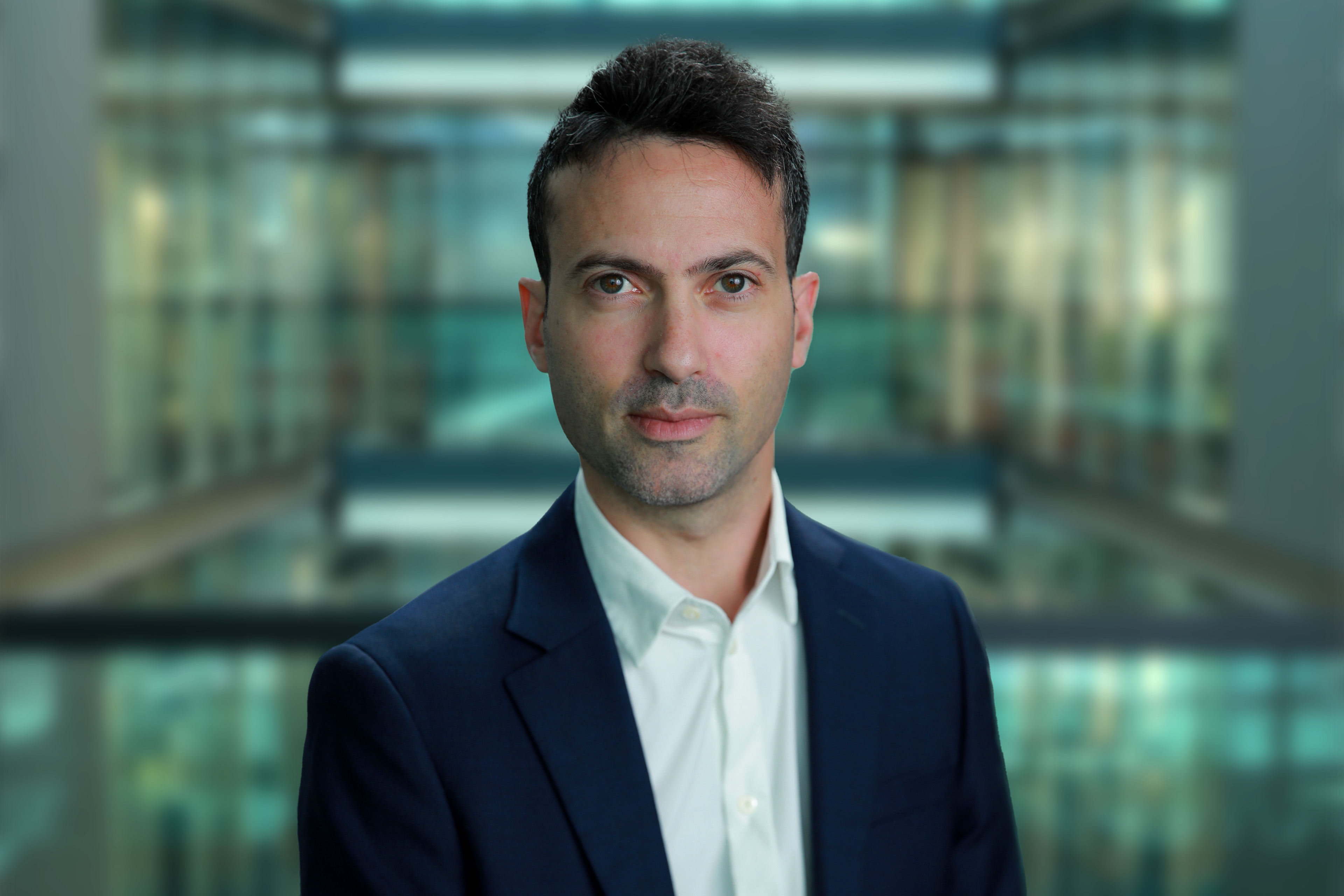EY refers to the global organisation, and may refer to one or more, of the member firms of Ernst & Young Global Limited, each of which is a separate legal entity. Ernst & Young Global Limited, a UK company limited by guarantee, does not provide services to clients.
Investor behavior changes in face of increasing market volatility as demand shifts to active investments and FinTech
- New EY Global Wealth Management research finds younger investors more likely to switch into active investments during volatility, with 50% of respondents increasing allocations compared with 22% of baby boomers
- 40% of wealth management clients think that managing their wealth has become more complex over the last two years, and 57% of high net-worth individuals (HNW) who feel unprepared to meet their financial goals cite market volatility as a primary reason
- 73% of respondents change investment behavior due to decline in portfolio value
Wealth managers will need to adapt faster than ever amid unprecedented levels of volatility and global uncertainty that is changing the way people invest in uncertain times, according to the 2023 EY Global Wealth Research Report.
The fourth edition of this detailed survey, which recorded the views of more than 2,600 wealth management clients across 27 geographies, found (40%) of survey respondents think that managing their wealth has become more complex over the last two years, with more than half (57%) citing market volatility as a reason for their lack of financial preparedness. This figure rises to 69% among baby boomer clients – those born between 1946 and 1964, who are more likely to have retired or be close to retirement.
Mike Lee, EY Global Wealth and Asset Management Sector Leader, says:
“Given the ongoing market volatility, investors have a lot of questions right now and they are hungry for advice. Continued market stress is amplifying their defensive stance and appetite for both switching and adding to their portfolio. The role of the wealth manager is crucial right now and will remain in the spotlight as they evaluate their risk models, provide sound advice and take a proactive approach to the interwoven complexities that have evolved rapidly in the past few months.”
According to the survey, over the past two years there has been a 30% decrease in the number of clients who indicate a key purposeful financial legacy goal of transitioning wealth to family and charity as a top priority. Investors’ three leading goals are now protecting wealth against losses and inflation (43%), strengthening investment returns (40%) and ensuring adequate income and financial security (32%).
Jan Bellens, EY Global Banking & Capital Markets Sector Leader, says:
“The findings of the study are clear – investors are diversifying more so than ever, and it will come as no surprise that given recent global events, immediate access to funds poses both an opportunity and a risk. Investment has become more complex and wealth managers will need to manage the associated operational challenges – including the rise of digital assets and ESG funds, and how investors are being influenced by market trends and economic uncertainty.”
Market volatility prompts proactive behavior
Despite unrest in the market, the appetite to switch wealth management providers is high, especially for younger investors. Almost half of respondents (45%) plan to add a new provider, move money to another provider or switch altogether in the next three years. Millennials – born between 1981 and 1996 are nearly three times (73%) as likely to move assets than Boomers (29%).
The appetite for passive versus active is reflected in the generational divide, with younger investors more likely to switch to active investment in the face of volatility; half of (50%) millennials increasing allocations to active investments compared to just 22% of boomers. Similarly, millennials are three times more likely to use a digital assets provider or crypto wallet than their older generational counterparts (24% of millennials have an existing relationship).
The proportion of respondents working with FinTechs to manage their wealth is expected to double from 9% to 18% over the next three years – attracted by the sector’s low charges, specialized digital experiences and low-friction switching. That growth is expected to be even more dramatic in Europe (increasing from 11% of respondents to 23%), Asia-Pacific (14% to 26%) and the Middle East (8% to 41%).
Appetite for advice grows
The survey shows investors are hungry for advice and expertise from their advisor to interpret economic, market and political shocks. Millennials (66%) and those feeling least financially prepared (67%) are signaling the clearest appetite for more advice on investment services, and specific regions are exceeding the 48% global average: Middle East (63%), Latin America (59%) and Asia-Pacific (56%).
The survey also found that investors have acted in similar proportions in response to market volatility, moving to active investments and seeking safety with increased allocation toward savings/deposits. Almost three-quarters (73%) of respondents changed investment behavior due to a decline in portfolio value, and more than a third (34%) moved assets into active investments. Conversely, 33% have taken a more conservative move toward savings and deposits. The survey also found that more than half (53%) would seek additional independent financial advice, and 62% investors globally would review their financial plans in response to future volatility.
For more information, read the full report here.
- ends -
Notes to editors
About EY
EY exists to build a better working world, helping to create long-term value for clients, people and society and build trust in the capital markets.
Enabled by data and technology, diverse EY teams in over 150 countries provide trust through assurance and help clients grow, transform and operate.
Working across assurance, consulting, law, strategy, tax and transactions, EY teams ask better questions to find new answers for the complex issues facing our world today.
EY refers to the global organization, and may refer to one or more, of the member firms of Ernst & Young Global Limited, each of which is a separate legal entity. Ernst & Young Global Limited, a UK company limited by guarantee, does not provide services to clients. Information about how EY collects and uses personal data and a description of the rights individuals have under data protection legislation are available via ey.com/privacy. EY member firms do not practice law where prohibited by local laws. For more information about our organization, please visit ey.com.
This news release has been issued by EYGM Limited, a member of the global EY organization that also does not provide any services to clients.
Methodology
The EY organization worked with Savanta to conduct a broad survey of more than 2,600 wealth management clients in 27 geographies to understand what they value most in their wealth management relationships across service models, engagement choices and value-aligned advice.
The EY organization profiled clients not just by traditional segments, such as age, gender, wealth and country of residence, but also by risk appetite, life stages, profession, sexual orientation, race and ethnicity and psychographic profiles. The EY organization also asked respondents to rate their knowledge in managing their finances and divided them into low, average and high categories depending on their knowledge of common and complex financial products.
Geographic coverage: North America including the US and Canada; Latin America including Mexico, Argentina, Brazil and Chile; EMEA including France, Germany, Italy, Luxembourg, Netherlands, Switzerland, and UK; Nordics including Denmark, Finland, Norway and Sweden; Middle East including Saudi Arabia, Qatar and UAE; Asia-Pacific including Australia, China, Hong Kong SAR, India, Japan, Republic of Korea and Singapore.
Related news
LONDON, 17 JULY 2023. Board directors serving Europe’s largest financial services firms currently hold an average of three board seats each, and over a quarter (26%) hold four or more, according to the latest EY European Financial Services Boardroom Monitor.
LONDON, 24 APRIL 2023. Wealth managers will need to adapt faster than ever amid unprecedented levels of volatility and global uncertainty that is changing the way people invest in uncertain times, according to the 2023 EY Global Wealth Research Report.
LONDON, 24 April 2023.The appetite of European ‘millennial’ investors (those born between 1981 and 1996) to make riskier investments amid market volatility is higher than the generations above them, according to the EY Global Wealth Research Report 2023, as younger investors more actively respond to and are influenced by external market events.
LONDON, 1 MARCH 2023: Following an 11% fall in assets under management (AUM) last year, growth in the European exchange-traded fund (ETF) market is expected to rebound over 2023, reaching US$1.7tn by year end, according to latest EY European ETF research and analysis.






